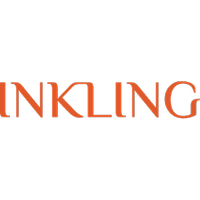Why we give all our employees flexible working + six weeks annual leave
It’s Soph from Inkling and I am currently in London for a month exploring the permanent expansion of Inkling to the UK. One of the things that people have loved hearing about is Inkling’s approach to flexibility and the positive business outcomes that we see, both with our clients and in our own business, when this is implemented well. While we haven’t got it perfect yet, we’re proud of pioneering a different approach to the majority of organisations – and we think that it is one of the secret ingredients to our success.
At Inkling we aim to practice what we teach by offering truly flexible working; over 50% of our team work part-time. We have team members who commit this time to their families, while others focus on their passion projects or simply enjoy time to themselves. Despite what many assume about the limitations of flexible working, we still manage to grow year-on-year, increase our revenue and profit and continue to develop deep and meaningful connections with each other (something we measure monthly).
Flexibility is also offered in the way we work; anyone can choose to work from home (ensuring they are still able to deliver outstanding client and team outcomes). We empower our team with autonomy and flexibility so they can fit their work around their lives. The latest research suggests that this is becoming more and more important as our younger generations seek to live a full life over one spent in the office 51 weeks of the year, placing higher value on work-life balance and flexibility over salary. This is also the case for older generations who are living longer and choosing to stay in the workforce but not wanting to, or are capable of, doing the full-time slog. At Inkling, we also deeply understand the needs of women, who in Australia still do 50% more childcare and house work, making it harder to work 9-5 in an office and needing flexibility to manage around their families. Our policy is also heavily linked to research on performance – people who are able to work from home are more productive, energised and motivated.
We also highly value rest and rejuvenation so that we can bring the best versions of ourselves to work. The science tells us that we need to give our brain and body a rest in order to be at our absolute best. This is why we offer all Inkling team members six weeks annual leave – this allows them to have multiple breaks throughout the year, take extended breaks for study, travel or simply choose to do nothing. Our annual leave policy has become a defining part of our culture, where we each take accountability for ensuring we take the breaks we need to follow our passions, interests and ensure we get a balance of both rest and play (FYI we consider work as play!).
The impact this has had for Inkling as a business has been incredible and we have been able to:
- Attract and retain super stars. We have been able to attract great talent, who chose us over companies that would not offer them the same freedom, making it impossible for them to balance their life commitments/desires. To those other organisations not brave enough to make the transition to flexible working we say: our gain and your loss!
- Inspire and motivate our team. I am continually grateful and overwhelmed by the commitment and motivation of our team. I truly believe that the trust and autonomy we offer them is returned to us tenfold through incredible passion and a willingness to go beyond what is expected. Dan Pink’s work on motivation clearly shows that autonomy is critical to inspiring innovation, creativity and unlocking potential.
While this all sounds wonderful, this approach has not come without challenges (which we think have been well worth it!). There are a few learnings we have had at Inkling over the past six years that will be helpful for you when thinking through how you can apply greater flexibility in your own team/organisation:
- Flexibility should not be valued over connection – there needs to be a balance. We encourage team members to come into the office on Monday and Friday so we can honour our value of Connection. We are hardwired to need meaningful connection, and research indicates that engagement is strongly connected to the connections we have with our fellow team members. There are common misperceptions that team connection needs to be done face-to-face to deliver results and this is not true. At Inkling we focus more on how to build genuine and meaningful connection, rather than force people to co-locate in order to foster this! We meet weekly as a team across locations (we all dial in for this) and ensure that each person has a weekly 1:1 with their leader to feel supported and cared for, something that our own experiences and research has proven as critical.
- Technology is an important consideration to foster strong connection and collaboration. We apply our thinking on technology in three ways:
- Firstly, if you are not meeting in person aim to do the meeting via video conference (VC), even if it is one-on-one. While I am the first to admit that getting VC meetings hooked up can be frustrating (trust me, I have had some of my less proud leadership moments in these instances), the research shows that we pick up so much more through non-verbal communication and strengthen connection.
- Secondly, when we meet, we commit to not using other devices. I am appalled when I visit other organisations by how commonly I witness people on their phones or doing emails while in meetings. It is one of the fastest ways to break trust and ruin connection.
- Thirdly, we record meetings for people who are unable to attend, (as despite scheduling considerations it can be likely that some part-timers will miss out). Team members are able to catch up on what was discussed in our team communication app, Slack, or listen to the whole meeting. We also move regular meetings to different days and times so that it is not always the same people missing out.
- Clarity around role outcomes and expectations is critical. While autonomy and flexibility sound exciting and empowering, in order to create alignment and security for our team we have had to get much better at setting clear role expectations and applying measures of performance. We still have a way to go, as change and our ability to adapt means that the goal posts can change. Despite this, we now have much clearer and structured ways to discuss and track performance so people are empowered to demonstrate their values with outcomes over hours spent in the office.
- Invest in team development to build trust. Trust is core to operating a flexible environment. We have committed to regular sessions that focus on building a courageous culture where we can speak our opinions freely and hold ourselves and others accountable. We use Brene Brown’s incredible BRAVING framework to think about, discuss and teach trust. It has required us to firstly look in the mirror and explore our self-trust in order to foster trust with others. This has been confronting, challenging and incredibly rewarding.
I challenge you to think about how you can push the flexibility agenda forward in your own workplace. I believe that flexibility is key to driving high performing, innovative and engaged workplaces of the future – and that your business is at great risk if you don’t start to make the change towards flex and rest to balance the increasing busyness in our lives.
Much love,
Soph
CEO & Co-Founder
Inkling

